SFI Short Course 2015 - Faculty 2015: Difference between revisions
From Santa Fe Institute Events Wiki
Connoroneil (talk | contribs) No edit summary |
Connoroneil (talk | contribs) |
||
| Line 57: | Line 57: | ||
In addition to his teaching duties for the Barnard economics department, Sethi is a Faculty Fellow at the Institute for Social and Economic Research and Policy (ISERP) at Columbia, and regularly teaches graduate courses in Columbia's economics department and the School of International and Public Affairs. | In addition to his teaching duties for the Barnard economics department, Sethi is a Faculty Fellow at the Institute for Social and Economic Research and Policy (ISERP) at Columbia, and regularly teaches graduate courses in Columbia's economics department and the School of International and Public Affairs. | ||
His research and teaching is focused primarily on Financial Economics and the Economics of Inequality. In recent work, he has examined segregation in neighborhoods and social networks, stereotyping in economic interactions, disparities across groups in crime victimization and incarceration, and the transmission across generations of group inequality. He is also currently working on polarization in public beliefs, the effects of credit derivatives on the cost of capital, and the dynamics of prices in speculative asset markets. | His research and teaching is focused primarily on Financial Economics and the Economics of Inequality. In recent work, he has examined segregation in neighborhoods and social networks, stereotyping in economic interactions, disparities across groups in crime victimization and incarceration, and the transmission across generations of group inequality. He is also currently working on polarization in public beliefs, the effects of credit derivatives on the cost of capital, and the dynamics of prices in speculative asset markets. | ||
<br><br> | |||
[[Image:strumsky.jpg|150px|{border}]]<br> | |||
[http://ineteconomics.org/conference/hongkong/deborah-strumsky Deborah Strumsky] Professor, University of North Carolina - Charlotte<br> | |||
<br> | |||
'''Bio''' | |||
Deborah Strumsky is an urban economist currently at the University of North Carolina at Charlotte. She specializes in studying the relationship between innovation and economic growth through a variety of methodologies including social network modeling, spatial econometrics and approaches from complex adaptive systems. Recent research efforts involved research on federal funding and invention in green technologies, a report with the Brookings Institute on Patenting and Innovation in Metropolitan America, and several papers on urban scaling with the Santa Fe Institute. She received her Master’s and PhD in Regional Science from Cornell University. | |||
<br> | <br> | ||
Revision as of 21:21, 23 February 2015
| Education Event Navigation |
Program Director
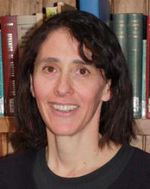
Melanie Mitchell, External Professor, Santa Fe Institute; Professor, Computer Science, Portland State University
Bio
Melanie attended Brown University, where she majored in mathematics and did research in astronomy, and the University of Michigan, where she received a Ph.D. in computer science, Her dissertation, in collaboration with her advisor Douglas Hofstadter, was the development of Copycat, a computer program that makes analogies. She is the author or editor of five books and over 70 scholarly papers in in the fields of artificial intelligence, cognitive science, and complex systems. Her most recent book, Complexity: A Guided Tour, published in 2009 by Oxford University Press, is the winner of the 2010 Phi Beta Kappa Science Book Award. It was also named by Amazon.com as one of the ten best science books of 2009, and was longlisted for the Royal Society's 2010 book prize.
Faculty (partial list)
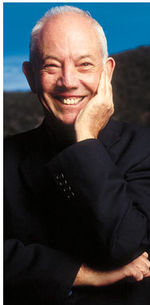
W. Brian Arthur, External Professor, Santa Fe Institute; Visiting Researcher, Intelligent Systems Lab, PARC
Bio
W. Brian Arthur holds a Ph.D. from Berkeley in Operations Research, and has other degrees in economics, engineering and mathematics.
Arthur pioneered the modern study of positive feedbacks or increasing returns in the economy--in particular their role in magnifying small, random events in the economy. This work has gone on to become the basis of our understanding of the high-tech economy.
Arthur was the first director of the Economics Program at the Santa Fe Institute in New Mexico, and has served on SFI's Science Board and Board of Trustees.
Arthur is a frequent keynote speaker on such topics as: How exactly does innovation work and how can it be fostered? What is happening in the economy, and how should we rethink economics? How is the digital revolution playing out in the economy? How will US and European national competitiveness fare, given the rise of China and India?
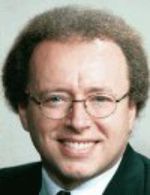
Robert Axtell Department Chair and Co-Director of the Computational Public Policy Lab
Bio
Rob Axtell earned an interdisciplinary Ph.D. degree at Carnegie Mellon University, where he studied computing, social science, and public policy. His teaching and research involves computational and mathematical modeling of social and economic processes. Specifically, he works at the intersection of multi-agent systems computer science and the social sciences, building so-called agent-based models of a variety of market and non-market phenomena. He is co-author of Growing Artificial Societies: Social Science from the Bottom Up (MIT Press) with J.M. Epstein, widely cited as an example of how to apply modern computing to the analysis of social and economic phenomena. Most recently he has co-founded and is Co-Director of the Computational Pubic Policy Laboratory, a joint project of the Krasnow Institute for Advanced Study and the School of Policy, Government and International Affairs (SPGIA) at Mason.

Aaron Clauset, External Faculty, Santa Fe Institute; Assistant Professor of Computer Science, University of Colorado at Boulder
Bio
Aaron Clauset received a PhD in Computer Science from the University of New Mexico and a BS in Physics from Haverford College, and was an Omidyar Fellow at the prestigious Santa Fe Institute.
Clauset is an internationally recognized expert on complex networks, complex systems, the statistics of rare events, global patterns in terrorism and war. His research focuses on developing novel algorithms and models for understanding the data generated by complex biological and social systems. His efforts are multidisciplinary, drawing heavily on data analysis, statistics and probability, algorithms, machine learning, and statistical physics.
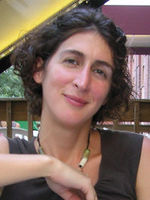
Mirta Galesic Professor, Santa Fe Institute; Cowan Chair in Human Social Dynamics, Santa Fe Institute
Bio
Mirta Galesic studies how simple cognitive mechanisms interact with properties of the external environment to produce seemingly complex social phenomena.
In one line of research, she investigates how apparent cognitive biases in social judgments emerge as a product of the interplay of well-adapted minds and the statistical structure of social environments. In another line of research she examines the origins of humans’ uniquely profound cooperation.
She also studies risk and uncertainty in complex systems, in particular in financial, medical, and environmental domains.
Galesic has published more than 50 peer-reviewed articles and co-edited a book. She received the 2013 Jane Beattie Award for Innovation in Decision Research from the European Association for Decision Making.

Rajiv Sethi External Professor, Santa Fe Institute; Ann Whitney Olin Professor of Economics, Barnard College
Bio
In addition to his teaching duties for the Barnard economics department, Sethi is a Faculty Fellow at the Institute for Social and Economic Research and Policy (ISERP) at Columbia, and regularly teaches graduate courses in Columbia's economics department and the School of International and Public Affairs.
His research and teaching is focused primarily on Financial Economics and the Economics of Inequality. In recent work, he has examined segregation in neighborhoods and social networks, stereotyping in economic interactions, disparities across groups in crime victimization and incarceration, and the transmission across generations of group inequality. He is also currently working on polarization in public beliefs, the effects of credit derivatives on the cost of capital, and the dynamics of prices in speculative asset markets.
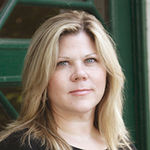
Deborah Strumsky Professor, University of North Carolina - Charlotte
Bio
Deborah Strumsky is an urban economist currently at the University of North Carolina at Charlotte. She specializes in studying the relationship between innovation and economic growth through a variety of methodologies including social network modeling, spatial econometrics and approaches from complex adaptive systems. Recent research efforts involved research on federal funding and invention in green technologies, a report with the Brookings Institute on Patenting and Innovation in Metropolitan America, and several papers on urban scaling with the Santa Fe Institute. She received her Master’s and PhD in Regional Science from Cornell University.
